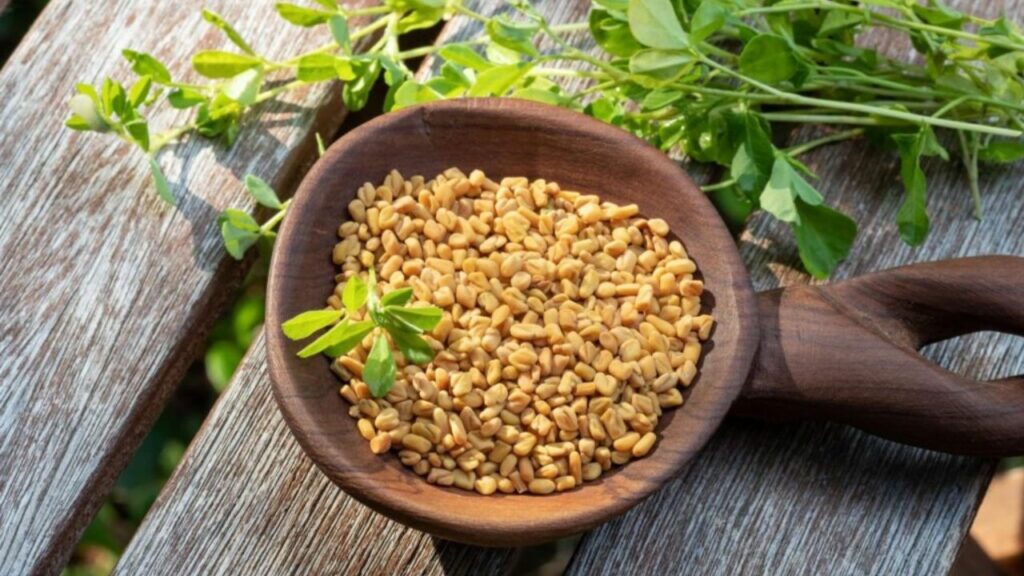Fenugreek, a herb treasured in ancient medicinal practices, has made its way into modern kitchens across the globe. Its versatility allows for its use in culinary creations and as a potent natural remedy for numerous health conditions. The daily incorporation of fenugreek seeds into your diet for two weeks can unlock a myriad of health benefits.
Fenugreek, scientifically known as Trigonella foenum-graecum, is a plant native to the Mediterranean region, Western Asia, and Europe. Its golden brown seeds, reminiscent of maple syrup in taste and aroma, are an essential ingredient in various cuisines and traditional medicines
The Nutrient Powerhouse
A tablespoon serving of fenugreek seeds provides a solid nutritional profile :
- Protein: 2.5 grams
- Fat: 0.7 grams
- Carbohydrates: 6.5 grams
- Dietary fiber: 2.7 grams
- Sodium: 7.4 milligrams
- Potassium: 85.5 milligrams

Fenugreek and Diabetes
One of the primary benefits of fenugreek seeds is their potential to regulate blood sugar levels. This is especially beneficial for individuals with diabetes or insulin resistance. The seeds’ high soluble fiber content slows sugar absorption in the stomach and stimulates insulin, effectively lowering blood sugar levels
Fenugreek and Digestive Health
Fenugreek seeds have a natural ability to enhance digestive health. They stimulate digestive enzymes, reducing discomfort from indigestion or bloating. Moreover, their high fiber content promotes gut health, alleviating digestive problems like constipation.
Fenugreek and Cardiovascular Health
Fenugreek seeds also exhibit potential in supporting cardiovascular health. The dietary fiber present in the seeds forms a viscous gel in the intestines, making it harder to digest sugars and fats. This mechanism can help regulate cholesterol levels and improve blood pressure.
Fenugreek and Weight Management
The ability of fenugreek seeds to suppress appetite and promote feelings of fullness can aid in weight management. The high fiber content of fenugreek fiber extract powders may also lead to a feeling of fullness, helping control overeating and aiding in weight loss.
Fenugreek and Inflammation
Fenugreek seeds possess anti-inflammatory properties that may alleviate symptoms of inflammatory conditions like arthritis and asthma. Regular consumption of the seeds can offer relief from these conditions.
Fenugreek and Hormonal Balance
Fenugreek seeds can influence hormone levels, particularly in postmenopausal women. Fenugreek extract may help ease discomfort linked to shifting hormone levels, such as reducing the frequency and intensity of hot flashes.
Fenugreek and Sexual Health
Fenugreek seeds may improve libido and sexual performance in men. A small study found that men who took fenugreek extract for six weeks reported enhanced libido and sexual performance.
Fenugreek and Lactation
Fenugreek seeds can increase breast milk supply in lactating mothers. Small studies have shown that mothers who drank fenugreek tea saw an increase in milk production, allowing their babies to gain more weight.
Fenugreek Side Effects and Precautions
While fenugreek seeds offer various health benefits, they may also cause side effects such as diarrhea, gas, bloating, and worsened asthma. In rare cases, they may cause allergic reactions. Individuals with pre-existing medical conditions, particularly those with diabetes or hypoglycemia, should consult a healthcare provider before incorporating fenugreek seeds into their diet.
Incorporating Fenugreek into Your Diet
There are several ways to incorporate fenugreek into your diet:
- Fenugreek Seeds: The seeds can be used as herbs or spices in various dishes, especially in Indian, Middle Eastern, and North African cuisines.
- Fenugreek Tea: A common way to consume fenugreek is by preparing a herbal tea. Steeping fenugreek seeds in hot water can make a potent health-boosting beverage.
- Fenugreek Powder: The powder can be added to yogurt, water, bread, or other baked goods, or used to make homemade pickles.
- Fenugreek Leaves: Although difficult to find in the U.S., fenugreek leaves can be added to soups and curries for an extra layer of flavor and nutrients.
The humble fenugreek seed is a potent health booster, offering a myriad of benefits from blood sugar regulation to improved digestion and hormonal balance. Incorporating these seeds into your diet for two weeks can lead to noticeable health improvements. However, individuals with pre-existing medical conditions should consult a healthcare provider before starting a fenugreek regimen.
